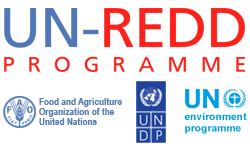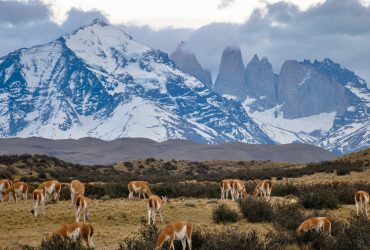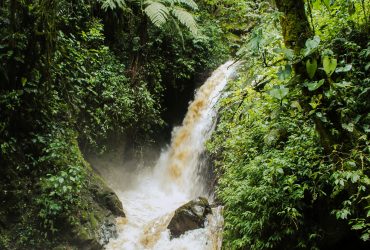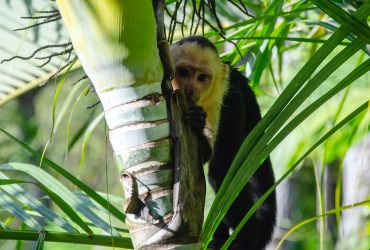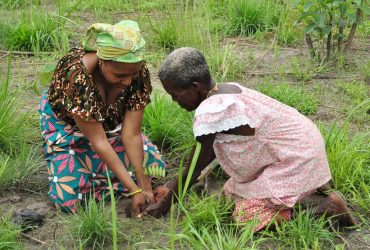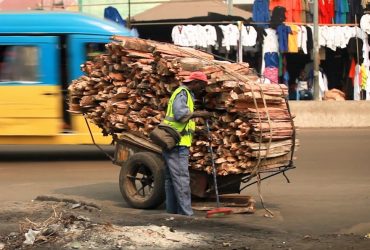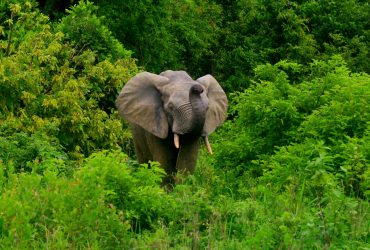GENDER AND SOCIAL INCLUSION
The TREES Concept Note and the LEAF proposal have integrated gender elements into proceeds, NDC alignment and safeguards discussions. Regarding support provided on the deployment of the Ecuador: Premium & Sustainable brand strategy and work on deforestation-free value chains, one of the pillars is the empowerment of women. Therefore, training was carried out with field operators from the Farmer Field Schools (ECAs) on three commodities (coffee, cocoa, and livestock) to ensure the mainstreaming of the gender approach. The ECAs have a specific session for gender and climate change issues. They also saw a high-level of participation from women: 38 percent in the livestock ECA, 24 percent in the coffee and cocoa ECA and 24 percent attended the training related to palm. Also, in September, 2021, virtual training sessions were given by a group of coffee experts from the Italian company, Lavazza, to 50 producers and technicians from six Amazonian provinces ensuring gender balance (25 men and 25 women) to strengthen capacities on sensory analysis, logistics and market trends.
Concerning the work of commercial agreements, the aim has been to ensure the participation of women as direct producers and as active participants in the commercialization of international markets. The first 3.8 tons of fine aroma organic cocoa, belonging to the Association of Small Organic Agricultural Exporters of the South of the Ecuadorian Amazon (APEOSAE), was sold to the Belgian company, SILVA CACAO, with a benefit to 11 female and 27 male cocoa farmers entering a new market niche with a high growth potential.
In 2021, UN-REDD actively supported the engagement of local organizations and communities of the Ecuadorian Amazon in the implementation of the National REDD+ Action Plan.
UN-REDD organized numerous knowledge transfer activities for local agricultural producers and cooperatives, including indigenous peoples’ cooperatives, strengthening productivity and establishing commercial alliances to enter international specialty markets for more sustainable products. These local producer associations include the Federation of Small Organic Agricultural Exporters of the Southern Ecuadorian Amazon (APEOSAE), Association of Coffee Growers of the Mayo River Basin (ACRIM), Aromas del Sur Cocoa and Derivatives Production Association (ASOPROMAS) and the Agro-Artisan Association of Ecological Producers (APECAP).
PARTNERSHIPS
All initiatives supporting Ecuador are coordinated under the umbrella of the National REDD+ Action Plan which was launched in 2016, following years of analyses and consultation with support from the UN-REDD Programme.
In 2016, the GCF approved a $41 million grant to finance its implementation, the first time that the GCF approved a REDD+ phase 2 project grant for REDD+, which totals $84 million including co-finance. In terms of REDD+ performance finance (phase 3), Ecuador signed an agreement with the KFW REM in 2019, with the German and Norwegian Governments providing $11 million Euros and $50 million USD respectively in RBPs for the reduction of emissions from deforestation from 2015-2019. An additional agreement now covering the years 2020-2021 has been reached with Norway. In 2019, Ecuador also received approval for $18.5 million from the international community (GCF) in the form of RBPs for REDD+.
Furthermore, to generate demand for the Premium and Sustainable brand at the regional, national and international level, Ecuador’s PROAmazonia is working in partnership with the European Forest Institute (EFI) and international private companies such as Lavazza, Olam, UNOCACE, ECOLAC and Latitud 0.
UN-REDD actively monitored the political transition as new authorities came to power in Ecuador in 2021. This involved numerous virtual meetings by regional and global advisors from the three UNREDD agencies, as well as regular interactions by country office staff.
LINKAGES TO SDGS
The implementation of the National REDD+ Action Plan contributed, and will continue to contribute, to numerous Sustainable Development Goals beyond the obvious contribution to SDG 13.
SDG 1. By supporting Socio-Bosque, as well as numerous activities in indigenous territories, UN-REDD makes an important contribution to the reduction of poverty. Socio-Bosque and Water Funds are important government programmes targeting indigenous peoples, particularly
in the context of the COVID-19 recovery phase. Both these programmes offer the potential for a rapid and cost-effective way to provide basic needs like food and shelter, a means to recover and rebuild after the crisis, and protection from future shocks.
SDG 12. Ecuador’s inter-ministerial agreement on Deforestation-Free Certification for Agricultural and Livestock Production represents a significant milestone by a pioneer REDD+ country to promote more sustainable consumption and production patterns.
SDG 15. By supporting the conservation of the biodiverse Ecuadorian Amazon forest, UN-REDD made a large contribution to the protection, restoration and promotion of the sustainable use of terrestrial ecosystems and to the sustainable management of forests.
